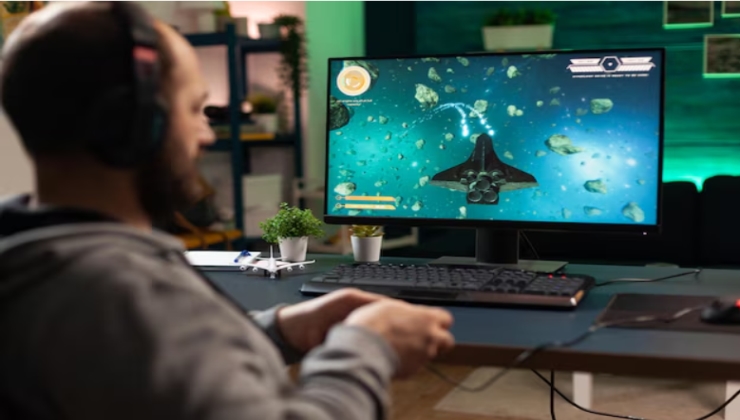Online games have evolved significantly over the past few decades. What started as simple entertainment has become a complex, immersive experience that engages millions of players worldwide. While the primary goal of these games is to entertain, they also foster a range of real-world skills. This article explores how online gaming can develop critical thinking, enhance social skills, and improve strategic planning.
Enhancing Critical Thinking
Problem-Solving Abilities
Many online games require players to solve puzzles, complete quests, or overcome obstacles. These challenges often demand quick thinking and the ability to analyze situations from different perspectives. For instance, slot games like “The Legend of Zelda” or “Portal” require players to think outside the box and use creative solutions to progress. This constant engagement with complex problems helps players develop their problem-solving abilities, which are essential in real-life scenarios such as workplace challenges or personal decision-making.
Decision-Making Under Pressure
Online games often put players in situations where they must make split-second decisions. Fast-paced games like “Fortnite” or “Call of Duty” require players to react quickly and choose the best course of action under pressure. This ability to make quick, informed decisions translates well into real-world situations, such as handling emergencies or making crucial business decisions.
Improving Social Skills
Teamwork and Collaboration
Many online games are designed to be played in teams, requiring players to collaborate and work together to achieve a common goal. Games like “League of Legends” or “Overwatch” necessitate effective communication, coordination, and collaboration among team members. These games teach players the importance of working as part of a team, understanding different roles, and leveraging each team member’s strengths. These skills are invaluable in professional environments where teamwork and collaboration are often the keys to success.
Building Relationships and Networking
Online gaming communities provide a platform for players to interact with people from all over the world. These interactions can lead to the development of meaningful relationships and a diverse network of contacts. Players often form lasting friendships and learn to communicate and empathize with people from different cultural backgrounds. This ability to build and maintain relationships is a crucial skill in both personal and professional life.
Enhancing Strategic Planning
Long-Term Planning
Many online games require players to think ahead and plan their actions carefully. Strategy games like “Civilization” or “StarCraft” demand players to develop long-term plans and anticipate potential challenges. Players must allocate resources, manage time effectively, and make strategic decisions that will impact their success in the game. These planning and management skills are directly applicable to real-world situations, such as project management or financial planning.
Adaptability and Flexibility
Online games often present players with unpredictable scenarios that require them to adapt their strategies. Games like “Minecraft” or “EVE Online” challenge players to be flexible and adjust their plans as new information or obstacles arise. This ability to adapt and remain flexible is essential in the real world, where unexpected changes and challenges are a constant. Players learn to pivot and find new solutions, a skill highly valued in dynamic work environments.
Developing Perseverance and Resilience
Overcoming Failures
Online games often involve trial and error, where players must learn from their mistakes and try again. This process of repeated attempts and continuous improvement helps develop perseverance and resilience. Games like “Dark Souls” or “Celeste” are known for their challenging nature, requiring players to persist despite frequent failures. This resilience is a valuable trait in real life, helping individuals to overcome setbacks and keep striving towards their goals.
Goal Setting and Achievement
Many online games provide players with a series of goals or achievements to work towards. These objectives motivate players to keep playing and improving their skills. Setting and achieving goals in a game can translate to real-life goal setting, helping individuals to stay focused and motivated in their personal and professional lives. The sense of accomplishment gained from reaching these goals can boost self-confidence and encourage a proactive approach to challenges.
Conclusion
Online games are more than just a source of entertainment; they are powerful tools for developing a range of real-world skills. From enhancing critical thinking and improving social skills to fostering strategic planning and building resilience, the benefits of online gaming extend far beyond the virtual world. As technology continues to advance and online games become even more sophisticated, their potential to positively impact players’ lives will only increase. Embracing online gaming as a means of skill development can open up new avenues for personal and professional growth, proving that sometimes, play can be the best form of learning.


